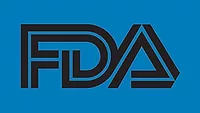FDA Requests Information on Poppy Seeds, High-Protein Yogurt

Image credit: Racool_studio via Freepik
The U.S. Food and Drug Administration (FDA) has issued two requests for information (RFIs) on poppy seeds and high-protein yogurt.
The RFIs are open until April 15, 2025.
Opiate Alkaloids in Poppy Seeds
The RFI for poppy seeds aims to better understand whether certain practices increase or reduce the presence of opiate alkaloids on poppy seeds. FDA intends to use information to help determine actions that may be necessary to ensure that poppy seed products do not pose a health risk when consumed, prompted by reports of adverse events related to the use of some poppy seed products.
The scientific literature and FDA’s preliminary surveillance sampling show that poppy seeds may have varying amounts of opiate alkaloids, and that opiate alkaloids may be present on poppy seeds or in poppy seed-containing foods. Opiate alkaloid exposure has been associated with a range of health effects, including unusual dizziness or lightheadedness, respiratory arrest, and, in some cases, even death.
FDA is seeking detailed information on the growing, harvesting, and post-harvest processes used for poppy plant crops, including types of equipment used and cleaning practices. The agency has also requested information on methods to monitor and control opiate alkaloid levels, such as testing and treatments, and details about the supply chain, including activities conducted during distribution that could reduce or otherwise affect opiate alkaloid content.
Standards of Identity for High-Protein Yogurt
The RFI for high-protein yogurt (also referred to “Greek yogurt” or “Greek-style yogurt”) seeks to better understand current manufacturing practices and ingredients used to make high-protein yogurt, because the manufacturing products and ingredients used to concentrate protein in these products may not align with the current standard of identity (SOI) for yogurt. High-protein yogurts are cultured with, at minimum, Lactobacillus delbrueckii, subspecies bulgaricus; and Streptococcus thermophilus.
At present, there does not exist a separate SOI for high-protein yogurt. Stakeholder comments and input received in response to past proposed rules and during public meetings support establishing a new SOI for strained, high-protein yogurt. Industry has raised concerns that the existing yogurt SOI does not accommodate certain practices or technologies for manufacturing high-protein yogurt.
FDA is seeking information from all interested parties to understand current manufacturing practices and ingredients used to make high-protein yogurt. The agency is also seeking information regarding the usage of various names for high-protein yogurt (e.g., Greek yogurt, Greek-style yogurt), including specific company practices, trade convention, and consumer studies.
Looking for quick answers on food safety topics?
Try Ask FSM, our new smart AI search tool.
Ask FSM →









